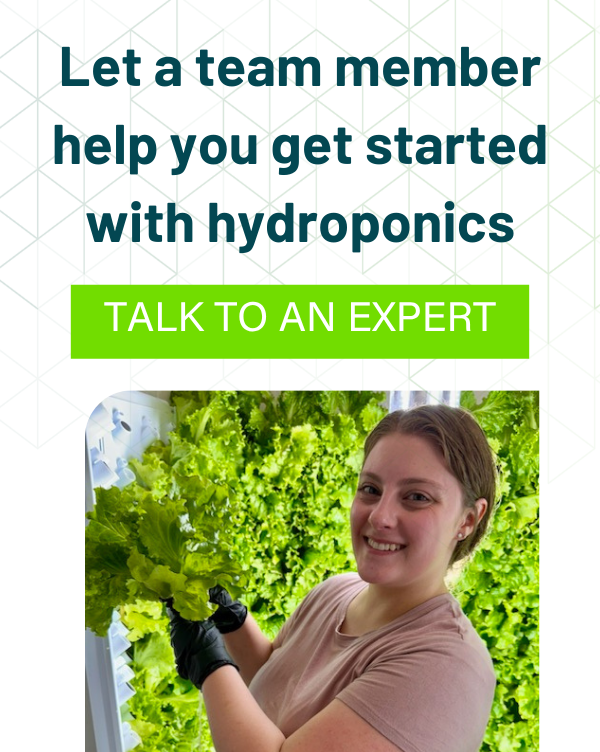The Best Hydroponic Seeds for Beginning Growers
Discover the benefits of pelleted seeds for beginner hydroponic growers and learn about the best plant varieties for hydroponic gardening. Get tips on storing and handling pelleted seeds for optimal success rates.
Are you a beginner hydroponic grower who's unsure of what type of seeds to use? If so, you're not alone. Choosing the right seed variety can be confusing, especially if you're new to hydroponics. In this blog post, we'll explore the difference between pelleted and raw seeds, the benefits of pelleted seeds, and why they might be a better option for beginners. We'll also discuss some easy-to-grow varieties that are perfect for those just starting out. Lastly, we'll provide some tips on how to store and handle your pelleted seeds to ensure the highest possible success rates.
Pelleted Seeds vs. Raw Seeds
Pelleted seeds are encapsulated in a protective coating made from materials such as clay, vermiculite, or calcium carbonate. This coating enhances seed size, shape, and uniformity, making them easier to handle and sow in hydroponic systems. In contrast, raw seeds are in their natural form, which can be tiny and difficult to manage, especially for beginners.
Advantages of Pelleted Seeds for Beginner Hydroponic Gardeners
For beginners just starting with hydroponic gardening, pelleted seeds offer several benefits. Their larger size and uniform shape facilitate precise planting and spacing, which is crucial for optimizing nutrient uptake and minimizing competition among plants. Additionally, pelleted seeds are less susceptible to damage during handling and transportation, ensuring higher germination rates and overall success.
The pelleting process improves the germination rates of seeds. By coating the seeds with a material that provides nutrients, moisture, and protection, the seeds are more likely to sprout quickly and consistently. This can lead to more uniform and reliable seedling emergence, which ultimately reduces the need for reseeding.
One of the advantages of pelleted seeds is their larger size. This allows for more precise seeding. With pelleted seeds, beginners can achieve more accurate and consistent planting, improving crop yields and reducing waste. Furthermore, pelleted seeds are less likely to be wasted due to accidental spills or uneven distribution during planting. This can result in cost savings for farmers and gardeners.
The coating of pelleted seeds provides some protection from environmental stresses such as moisture, temperature fluctuations, and growing conditions, which can improve seedling establishment and early growth.
Overall, pelleted seeds offer convenience, efficiency, and improved performance compared to raw seeds, making them a preferred choice for many hydroponic growers.
Best Plant Varieties for Hydroponic Beginners
Selecting the right seeds is important for beginner hydroponic growers. Among the many options available, leafy greens and herbs are ideal due to their simplicity and rapid growth.
Lettuce is relatively easy to grow, even for beginners with limited hydroponic gardening experience. Lettuce varieties such as butterhead, green star, and romaine are excellent starting points, boasting quick germination, harvest times, and a wide range of culinary uses.
Most lettuce varieties do not require extensive care and have a relatively short growing cycle, allowing beginners to see results quickly. Some varieties can be harvested in as little as 30 days. Due to its forgiving nature and adaptability, lettuce tends to have a high success rate for beginners. Even if mistakes are made, lettuce plants often bounce back quickly.
In addition to lettuce, herbs like basil, cilantro, and parsley thrive in hydroponic environments and are perfect for beginner growers. These aromatic herbs require minimal maintenance and reward growers with abundant yields, making them satisfying and rewarding options for beginners.
Tips to Store & Handle Pelleted Seeds
To ensure you maximize your chances of success, you must store and handle your pelleted seeds properly. Pelleted seeds must be stored in a cool, dry place away from direct sunlight and moisture. Use airtight containers or seed packets to prevent moisture from getting in.
Avoid exposing pelleted seeds to excessive moisture, as this can cause them to break down or become moldy. Maintain a consistent temperature for the seeds. Most pelleted seeds prefer temperatures between 60-75°F (15-24°C). Avoid extreme temperature fluctuations. Handle pelleted seeds with care to prevent damage to the coating. Avoid crushing or rough handling, as this can affect germination rates.
Keep track of the type of seeds and their planting requirements by labeling containers with seed type, date of purchase, and basic growing instructions. When stored properly, most seeds have about a year's shelf life. After a year, the germination rate success might dip.
Following these care tips can increase the chances of successful germination and healthy growth of your pelleted seeds.
At Fork Farms, we provide our partners with an array of valuable resources to jumpstart their hydroponic journey. Our Grow Guide Video Series is filled with dedicated sections that cover everything from selecting the right seeds to handling, planting, and ensuring successful germination. We also offer seed bundles tailored specifically for crops that thrive in hydroponic environments. These seeds have been carefully handpicked by our team of experts, guaranteeing high success rates in the Flex Farm and making growing them simple to do.
Contact our team of experts to learn more about what you can grow in the Flex Farm. You can also check out our Grow Guide Video Series to discover more about growing hydroponically in the Flex Farm.


